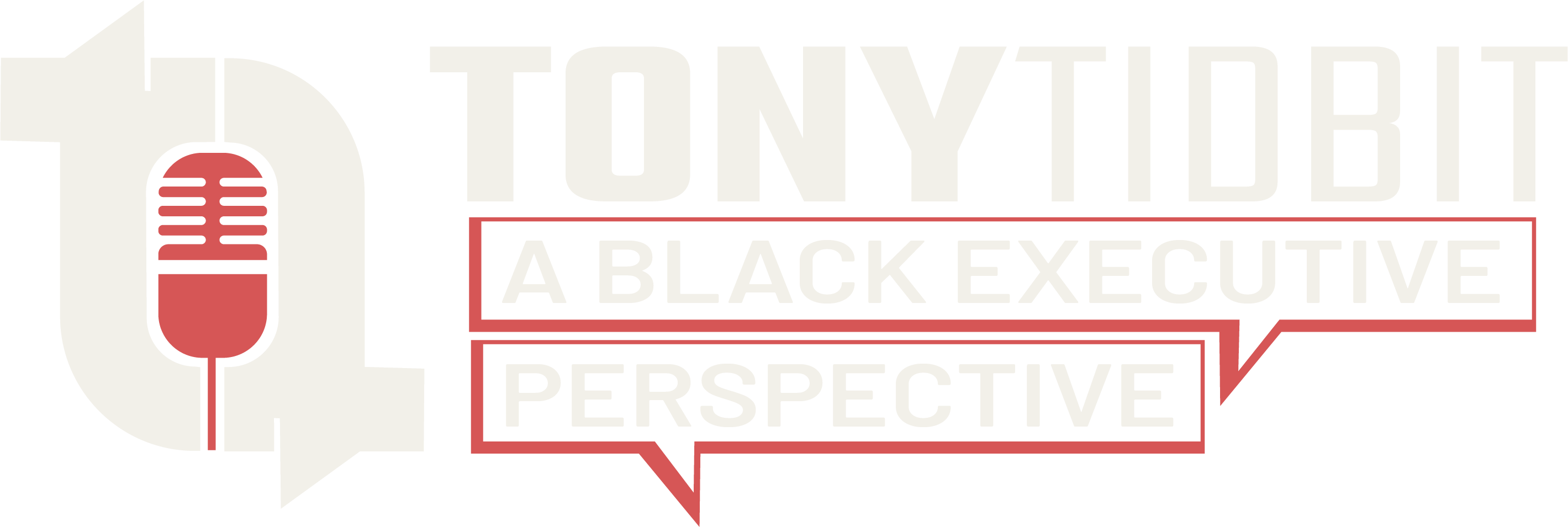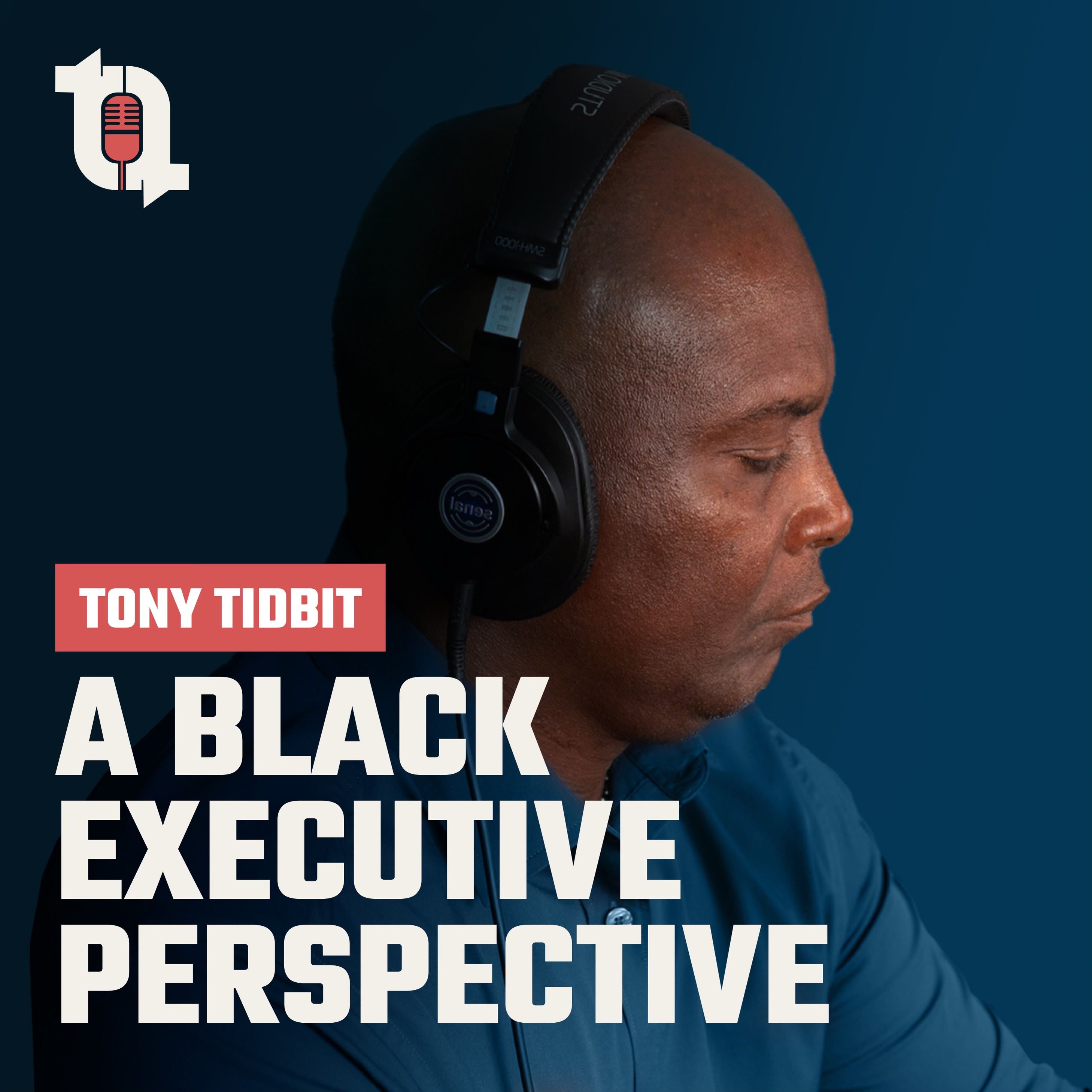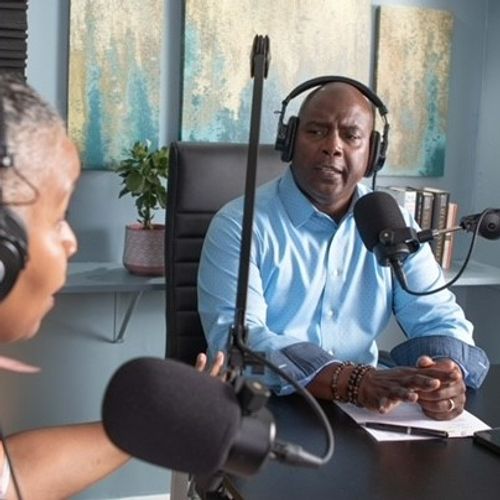Balancing Personal and Professional Life: A Black Executive's Guide
Episode Title:
Episode Audio Link: https://podcast.ablackexec.com/episode/Balancing Personal and Professional Life: A Black Executive's Guide
Episode Video Link:
In this episode of 'Need to Know with Dr. Nsenga Burton,' Dr. Burton discusses the critical importance of keeping personal lives separate from professional lives, especially for Black executives. Highlighting the extra challenges faced by Black professionals, she explains how personal missteps can lead to severe professional consequences. She cites high-profile examples like Sean Combs and Jeffrey Epstein to illustrate her points. Dr. Burton emphasizes the need for behavior to align with professional expectations, and how, as one ascends in one’s career, the stakes become higher. She advises maintaining personal integrity to ensure professional success and discusses the cultural shifts affecting societal norms and legal standards.
▶︎ In This Episode
00:00: Introduction to Need to Know with Dr. Nsenga Burton
00:27: Challenges Faced by Black Executives
02:21: The Importance of Personal and Professional Alignment
03:17: Consequences of Misaligned Personal Lives
04:23: The Entertainment Industry's Dark Side
06:16: Society's Changing Norms and Legal Expectations
08:02: Final Thoughts and Advice for Black Executives
10:57: Conclusion and Farewell
🔗 Resources
Links and resources mentioned in this episode:
🔔 Listen and Subscribe
Listen to this episode and subscribe for future updates
subscribe to A Black Executive Perspective podcast on
- YouTube Podcasts
- Apple Podcasts
- Spotify Podcasts
- Amazon Music
- Other platforms or by searching "TonyTidbit"
if you like what we're doing and would like to support us, here's some ways you can help us continue the uncomfortable conversations that drive change
- subscribe to our newsletter
- give us up to a 5 star review on Apple Podcasts
- share an episode with a friend, family member or colleague
🗣️ Follow @ablackexec
follow us across social media @aBlackExec
⭐️ Follow @TonyTidbit
follow Tony across social media @TonyTidbit
This episode was produced by TonyTidbit ™ . Copyright © 2024 A BLACK EXECUTIVE PERSPECTIVE LLC. All rights reserved. No part of this podcast may be reproduced without prior written permission. For permissions, email podcast@ablackexec.com .
Transcript
A Black Executive Perspective now presents Need to Know
2
:with the award winning hyphenated Dr.
3
:Nsenga Burton.
4
:Dr.
5
:Burton.
6
:What do we need to know?
7
:Dr. Nsenga Burton: Good morning and
welcome to Need to Know with Dr.
8
:Nsenga Burton.
9
:It is me, Dr.
10
:Nsenga, and I am here today to
talk to you about the necessity
11
:of keeping personal lives safe.
12
:Separate from professional lives, and
particularly when we talk about it
13
:from a black executive perspective,
um, as you know, you know, being a
14
:person of color, uh, in general, a
black person, specifically, we've
15
:said this, you know, a billion times.
16
:You have to work twice as
hard to get half as far.
17
:You often are not given
the same grace as others.
18
:And so when you make mistakes or have
challenges, they are not forgiven.
19
:And they often result in your.
20
:Demotion or termination or what have you,
while you have watched other people just
21
:fail up and fail upward and fail upward
and fail upward, um, for whatever reasons,
22
:um, some of it's, you know, culture,
some of it's racism, some of it's sexism,
23
:some of it's all of the isms, uh, but for
whatever reasons, uh, and there are many.
24
:Uh, when you are in a particular
place, as you're an executive, your
25
:CEO, your president in the C suite,
if you will, when you are a black
26
:person, a person of color, and you
haven't been there before, right?
27
:Um, you're not new to it, but, you
know, we always say I'm not new to this.
28
:I'm true to this.
29
:But when you are in certain environments,
um, and climates that are very different
30
:from where you typically move, um,
or work, then the stakes are higher.
31
:And so we're seeing that, uh,
particularly in, I would say as a Gen
32
:Xr, uh, you're seeing a lot of that
with people who have really risen, uh,
33
:and achieved, I mean, amazing things
professionally in the workplace.
34
:You know, they have transgressed
every type of financial economic,
35
:I would even say racial boundary
based on their ability to accumulate
36
:enormous wealth and access to resources
that are traditionally historically
37
:hard to access when you come from a
historically disenfranchised population.
38
:So when you do have the opportunity
to get to that place, the stakes are
39
:higher in terms of how you conduct
yourself personally, um, as it relates
40
:to your professional brand or image.
41
:And so you may be able to, so despite
the fact that you are an amazing,
42
:Entrepreneur or an amazing business
person or an amazing executive
43
:or whatever term you want to use.
44
:And you are functioning at the
highest level of the profession.
45
:You know, you are an influencer.
46
:You are a game changer.
47
:You are a trailblazer.
48
:You can create a life.
49
:Opportunities for others.
50
:You can move in a way that most people
are unable to move within your industry.
51
:And even to those industries that
are tangential based on who you are
52
:and what you have come and which
which who you are, who you have
53
:become and what you have built.
54
:But having said all of that.
55
:When your personal life is not in
alignment with your professional rise,
56
:that's when you see the downfall.
57
:So, you know, a lot of people are
talking about, um, Sean Combs, uh, you
58
:can look at Jeffrey Epstein, you can
look at Russell Simmons, you can look
59
:at, um, You know, lots of people I'm
blanking on the woman, um, who's now
60
:in jail, uh, who built this company
and, you know, it turned out she was a
61
:fraudster and all the things, but, you
know, it cuts across class, race, gender,
62
:all of the things, but what doesn't.
63
:Is the, what doesn't, um, you can look
at a number of examples of real, of
64
:real world examples where this has
happened, but you know, despite the
65
:differences in those people, the one
thing that remains unchanged is if
66
:your personal life is not together, i.
67
:e.
68
:In lockstep pretty much with normative
values, then the fall will be harder.
69
:Right?
70
:And so what you might think is acceptable
behavior because you're an entertainment,
71
:if you will, entertainment, let me
just say, as someone who's worked in
72
:entertainment and continues to work
in entertainment to some extent,
73
:based on my areas of expertise and my
skill set and what I went to school
74
:for entertainment can be a very.
75
:Disgusting place.
76
:And now when I think about
the things when I was younger.
77
:Like, the only time I've ever
been offered, uh, drugs, illicit
78
:drugs, e cocaine, or whatever,
is in entertainment spaces.
79
:I mean, at work.
80
:You don't even have to be at a party.
81
:Um, but it is just a
very complicated place.
82
:It is, um, you know, the boundaries
are blurred between what's appropriate
83
:and what isn't in some cases.
84
:In other cases, it's just downright.
85
:Um, denigrating for women, I would
say, most women, if not all women,
86
:and certainly people who are
trying to get into these places
87
:and trying to rise in these places.
88
:And then there's a culture of debauchery.
89
:I mean, it's just point blank and this
is not with did not originate with Gen X,
90
:you know, casting couch term goes all the
way back to the turn of the last century.
91
:Um, and so these things have
been happening, um, and they
92
:have been allowed to happen and
to go on, you know, for decades.
93
:See Hugh Hefner.
94
:All right, um You know, because
the business prevailed, right?
95
:So if you are meeting a bottom line,
if you are celebrating a society
96
:based on your business, acumen and
achievements, um, you know, in the
97
:United States, we worship wealth.
98
:You know, people don't like
to say that I worship God.
99
:Yeah, a lot of us worship wealth and
don't know the difference, but that's
100
:another, that's another podcast.
101
:So we worship wealth and
things of that nature.
102
:Um, and so people who participate
in these, um, you know,
103
:some of these heinous acts.
104
:You know, like, sex trafficking and
things of that nature, um, are often
105
:elevated, you know, professionally,
but what always happens in:
106
:and I would say successive years,
you're going to be caught and you're
107
:going to fall because culture has
changed and society has changed.
108
:Right.
109
:And so even though.
110
:We don't want to go back to a time
where we had these rigid, uh, gender
111
:norms and these rigid, um, uh, ideas
about what constitutes a family.
112
:Um, you know, I'm not talking about
archaic things, um, that are just,
113
:you know, Not really reflective
of the society in which we live.
114
:Right.
115
:And have always lived, you know, quite
frankly, but I'm talking about the
116
:illegal activities or anything that can
be construed as illegal, um, based on
117
:behaviors that are just not normative.
118
:And when that bleeds into
your professional space.
119
:That's how you fall.
120
:So it's not, you know,
uh, people going after Mr.
121
:Cosby because, um, he tried to buy
NBC people going after, uh, Mr.
122
:Combs because he, um, tried to buy BET or
whatever is really because the behaviors
123
:that they've been engaging in are, um,
not in keeping with what is not only,
124
:uh, consider appropriate for someone
of their status, but also, you know, It
125
:is not keeping up with the laws and how
the laws have changed and continue to
126
:change, um, you know, throughout history,
throughout society, throughout time.
127
:And so if you can't get a handle on
your personal behavior, then follow
128
:the law, and that should help you.
129
:Um, because the point of this podcast
is to say that when you are working
130
:and operating at a higher level.
131
:When you become a role model, when
you become the CEO of something, when
132
:you become a billionaire or close to
a billionaire, the stakes are higher
133
:and the expectations are greater in
terms of what your behavior will be.
134
:And so you can't do what you did at 20.
135
:For 30 years and think it's not going
to come back and haunt you and get you
136
:you can't it laws change over time So
even if you got away with it at 20,
137
:you're not getting away with it at 40
Definitely not at 50 certainly not at 60.
138
:You're not getting away with it Um,
and so I just want to say on this
139
:black executive podcast perspective
That um something we should always be
140
:thinking about is how do we represent
ourselves in our personal lives?
141
:You What are the things that we
do, um, for our community as we get
142
:older, we are supposed to mature and
our behaviors are supposed to shift.
143
:I'm not saying that you have
to be boring or you can't
144
:have fun or you can't be wild.
145
:All the things that people like to do
what I am saying is when you reach a
146
:certain level, you can no longer do
the things that you did previously.
147
:Even if they were legal at the time,
and they're now illegal, um, because
148
:you should have outgrown it anyway.
149
:All right.
150
:So this, uh, arrested development
that we want to stay in, you know,
151
:as we grow higher professionally, as
we achieve more professionally, as we
152
:achieve more socially and economically,
this desire to remain where you were
153
:when you were 18 years old or 20 years
old has to go when it does not go.
154
:And when those things are not in
alignment, particularly with the
155
:mission of your organization.
156
:You will fall.
157
:So without further ado, I just want to
say make sure that your actions Align
158
:with where you are in the workplace if
you have no desire to move up if you are
159
:happy You know, I keep seeing all these
videos which make me laugh I actually
160
:send them around where people are saying
what they will and won't do and i'm being
161
:demure today I'm not going to work today.
162
:Here's a song about me not
wanting to go to work and all that
163
:kind of stuff Hey, that's cool.
164
:That's fun.
165
:That's fun You know, it makes me laugh.
166
:I think we all have some of
that in our heads sometimes.
167
:Like, oh my gosh, do I not, why
do I have to go to work today?
168
:I don't feel like it,
but you have to do it.
169
:Right.
170
:So I get that.
171
:But if you have goals and aspirations,
if you want to rise to the top of
172
:your field, the top of your company,
you have a company, you own your own
173
:company and you want to do business
with major corporations or government
174
:entities, uh, things of that nature.
175
:Uh, nonprofits, same thing that you
have got to have your personal life
176
:together and it has to align such
that your personal life does not
177
:become a problem for your professional
life and vice versa, I would add.
178
:So thank you for tuning in to a
black executive podcast perspective.
179
:So thank you for tuning into a
black executive perspective podcast
180
:today, and I'll see you next week.
181
:BEP Narrator: A black
executive perspective.





